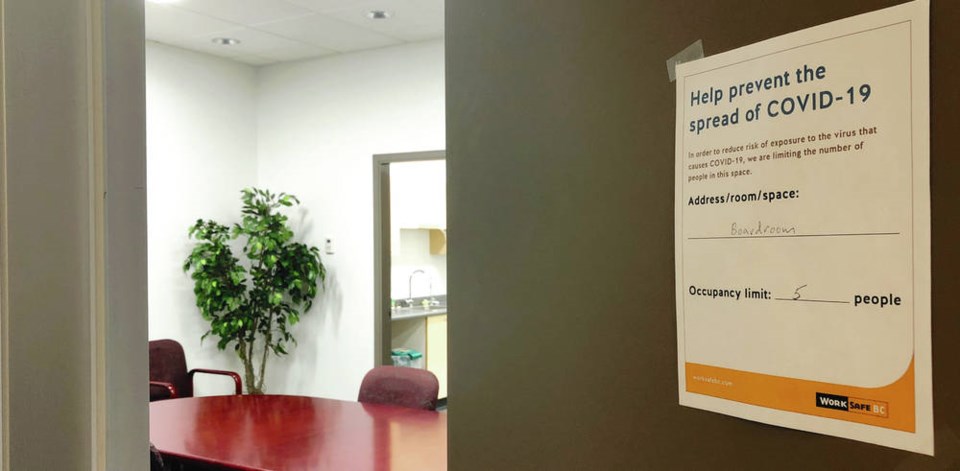WorkSafeBC is preparing to ramp up a multi-media campaign to drive home the importance of being vigilant about preventing the spread of COVID-19 in the workplace.
Al Johnson, WorkSafeBC’s head of prevention services, said the organization had to be quiet during the election campaign, but plans to get the word out as a second wave of the pandemic hits B.C.
“We’re reminding employers and workers to stick to the plan,” he said, noting after thousands of inspections around the province, it’s clear most workplaces have good measures in place.
“We need to remind employers to stick to those plans,” he said, but after eight months of COVID, fatigue and complacency are beginning to set in.
“There is a natural tendency to relax a little bit as we start to get comfortable with this [situation], but we don’t want employers and workplaces to relax — we want them to stay vigilant.
“Everyone wants to get over this, but it’s not going away.”
Though COVID case numbers may be rising in B.C., WorkSafeBC says that since July, it’s only had about 200 reports of potential workplace violations — it had fielded 3,300 prior to that point — and has issued just 64 orders for COVID-related health and safety violations, down from the 563 it issued through the first five months of the pandemic.
In total, WorkSafeBC has conducted 17,655 workplace inspections during the pandemic. More than 6,800 were in the services sector, which includes restaurants and bars, while 3,600 inspections were in construction, and the wholesale and retail trade sector.
Johnson attributes the relatively low violation rate to widespread emphasis on safety precautions.
“So many employers realized these [safety plans] were what they would have to do if they wanted to open their doors and keep their businesses going,” he said. “There was very little resistance to compliance from employers.”
Johnson added that since September, WorkSafe has carried out more than 1,000 planned inspections and another 1,000 inspections in response to a complaint about a potential violation, and found most employers still have good COVID safety plans.
Some of them have added staff and opened up more since the summer, however, which necessitates a revamped safety plan to ensure physical distancing.
The most recent claims data, posted this week, shows 1,419 COVID-19-related claims for workers’ compensation have been filed with WorkSafe since March.
Of those, 430 have been allowed, 698 disallowed and 154 remain pending. Others may have been rejected, suspended or may still be pending subject to additional information.
Health-care workers have been in touch with WorkSafe most often, filing 772 claims, 320 of which were allowed.
According to WorkSafe, claims are allowed when there is sufficient evidence to establish a worker has COVID-19 and faced a significantly higher-than-ordinary exposure risk in the workplace.



